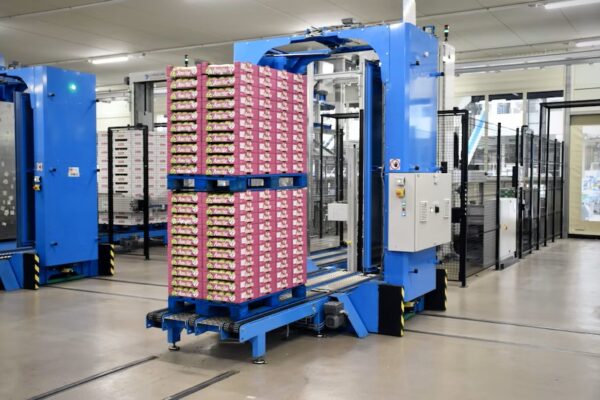As digital tech marches ever onwards, blockchain technology is quickly creating ripples across a number of industries. One such sector primed for disruption is logistics and supply chain management.
To discover how much of an impact it’s having in this niche, let’s discuss how this innovative tech can transform these operations, delivering transparency in the process.
Understanding Blockchain: A Primer
Blockchain is a revolutionary technology that at its core, aims to enhance transparency and security in digital transactions.
To understand blockchain, imagine a decentralized network of computers (nodes) each holding an identical copy of transaction data. Each block in the chain contains information about several transactions creating an unalterable history. This enables both verification and trust between participants without intermediate parties involved.
The potential areas for its application are numerous, with one such being in logistics and supply chain management, as we’ll discover.
The Evolution of Logistics and Supply Chain Management
The world of logistics and supply chain management has grown rapidly, becoming an intricate labyrinth connected by complex webs of transactions.
Every product reaching our hands today navigates this maze, starting from raw materials sourcing to end consumer delivery. Over time, managing these chains became progressively demanding due to several factors including globalization, increased regulatory demands, and heightened customer expectations for transparency.
Handling such complexities necessitates more sophisticated technologies. Enter blockchain tech, with the promise of added security, enhanced transparency and efficient traceability.
Blockchain’s Rise in the Logistics Industry
The logistics space has seen its fair share of innovations. However, few have shown as much promise and impact as blockchain technology. Here are a few ways how:
- Enhanced Transparency: Blockchain provides accurate tracking of products from manufacturing to end consumers, fostering greater transparency.
- Improved Efficiency: It reduces paperwork and administrative errors by aligning logistic operations on a singular digital ledger.
- Security Boost: The cryptographic nature of blockchains make them virtually tamper-proof, increasing security tremendously.
One specific application lies with 4PL logistics. These providers manage entire supply chain solutions for businesses. With blockchain they can offer clients unprecedented levels of visibility and confidence in their supply chains’ integrity, which is an impactful proposition allowing them to differentiate themselves in this highly competitive marketplace.
How Blockchain Drives Transparency in Supply Chains
As mentioned, blockchain technology is paving the way for transparent and accountable supply chains. Here’s how:
- Traceability: Blockchain helps track every product’s journey from source to buyer, ensuring everyone can validate where components have come from.
- Verification: It verifies goods at each step via smart contracts, which are digital agreements encoded onto a blockchain that execute when certain conditions are met.
- Fraud Reduction: By linking physical products to serial numbers or barcodes, blockchain makes it difficult for false information or counterfeit goods to taint the chain.
In this light, transparency isn’t just about visibility but also authenticity and assurance of ethical practices along the entire route. Thus, with blockchain deployed strategically, industries can create supply chains which are not only highly efficient but also fully trustworthy. It’s parallel to other evolutions, like packaging sustainability breakthroughs that are winning over consumers today.
Navigating the Future: The Road to Transparent Supply Chains with Blockchain
As we look towards a future of increasing global trade, blockchain’s application in logistics and supply chain management becomes not just plausible but inevitable.
Through its unique strengths in transparency, security, and efficiency, blockchain provides clarity amidst complexity in bustling supply chains.
Adopting this innovation could be the key for companies to withstand regulatory scrutiny, meet customer demands for visibility, and scale efficiently moving forward.
The road may require technological adjustments and market education but it seems clear that transparent supply chains can be our new reality with the help of blockchain tech.





